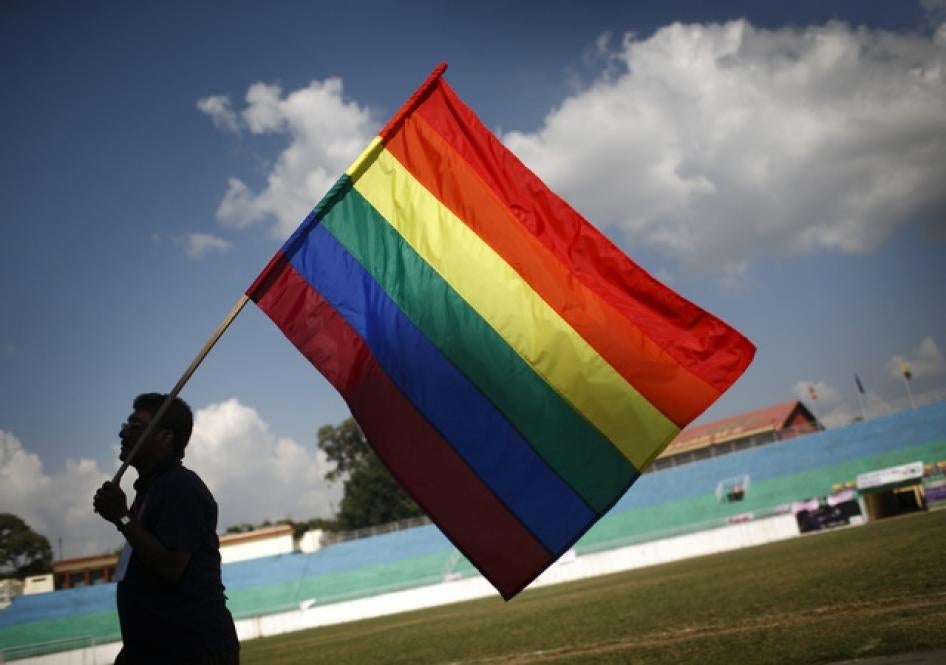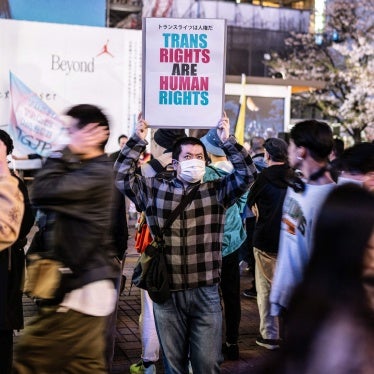The arrival of a transgender activist from Nepal in Taiwan last Saturday for the 2015 International Lesbian and Gay Association’s Asia conference may seem unremarkable. But it was in fact quite special: The activist, Bhumika Shrestha, is the first Nepali citizen to travel abroad carrying a passport marked O for “other” instead of M for “male” or F for “female.”
This is a groundbreaking and long-overdue achievement for global travel because it demonstrates that self-identification can and should be the sole factor in obtaining gendered documents.
Nepal’s legal recognition of a third category began with a 2007 Supreme Court case in which the judge ordered the government to create a legal category for people who identify as neither male nor female. Crucially, the judgment dictated that the ability to get documents bearing a third gender should be based on “self-feeling.” That is to say: no tests, expert opinions, or other potentially humiliating adjudication should play a role in the process.
But that concept had at the time only recently been enshrined in the Yogyakarta Principles, the first international guidelines on sexual orientation, gender identity, and human rights standards. And carrying out the court decision proved knottier than the court’s declaration.
Following the court’s judgment, LGBTI rights activists in Nepal advocated with bureaucrats to include the third gender on everything from voter rolls to citizenship papers. In 2011, Nepal included a third gender in its census. But when I went with Shrestha that year to the District Administration Office in Kathmandu, the capital, to change her legally recognized gender on various documents, she got a real run-around. First she was told that she needed to change her citizenship certificate. The DAO bureaucrats sent her from office to office and handed her case off dismissively — ultimately telling her she needed more paperwork indicating various approvals.
“This is the 13th time I’ve been here, and the officials’ excuse for not changing my papers is different every time,” she told me as we exited to muddy monsoon streets. Shrestha was assigned male identity at birth and raised as a son by her parents. When she was a teenager, she began to develop her identity differently and soon came to understand herself as female. Her parents accepted her identity, and she still lives at home with them. But the government, despite the court’s ruling, needed more convincing. Like transgender people around the world who seek legal recognition of who they are, she braved dozens of humiliating and degrading inquisitions — government officials asked her questions about her genitalia and her sex life.
Only this year, after sustained pressure from LGBTI rights activists, was Shrestha able to finally obtain her third-gender citizenship certificate and begin changing other documents.
Shrestha’s push for third-gender documents, alongside other Nepali activists, is not the only way forward. Some transgender people prefer to be identified as male or female, not a third category. But for global travel, the concept of self-identification is too rarely implemented. There is already some precedent for reflecting gender identity on travel documents even if it falls outside a male-female binary. International travel document guidelines set out by the United Nations’ International Civil Aviation Organization, which sets regulations on global air travel, already specify that passports can be issued bearing M for male, F for female, or X for indeterminate gender. Australia, New Zealand, and Malta all allow for X passports in some cases. As one U.N. expert noted in 2009, “measures that involve increased travel document security, such as stricter procedures for issuing, changing and verifying identity documents, risk unduly penalizing transgender persons whose personal appearance and data are subject to change.”
But in addition to the dignity such a shift affords people who want third-gender passports, this autumn’s successful issuance of Shrestha’s passport and her Taiwanese visa shreds one common argument against issuing passports in three genders: that foreign governments will not acknowledge them, imperiling those who possess them. There is no Taiwanese consulate in Nepal, so Shrestha had to travel to India to apply for her visa. This means she left Nepal, entered India, and successfully obtained a Taiwan visa all bearing her legal gender marker, O. Hong Kong also issued her a transit visa for the trip.
That the budding politician is attending a major Asian LGBT rights conference is significant. The region’s governments have a long way to go on legal gender recognition. But there are glints of progress that should be held up as examples, and Shrestha’s long-overdue achievement should stand as an illustration of how dignity can be achieved and progress made simply by following basic human rights standards and international guidelines.









